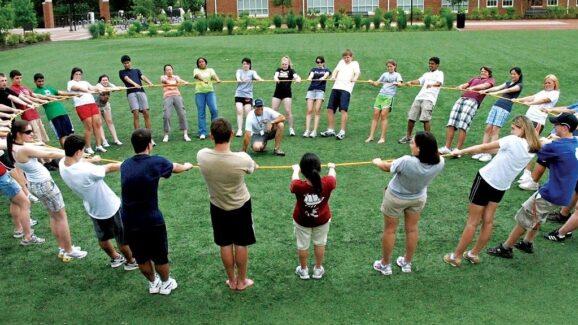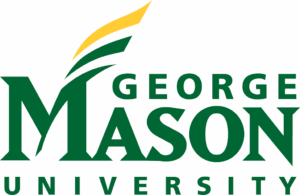Annual Program Evaluation

- >
- About FTE
- >
- Annual Program Evaluation…

September 17, 2025
4400 University Dr.
Fairfax, VA 22030-4444
Board of Trustees
The Fund for American Studies
2025 Annual Program Evaluation
To the Board of Trustees,
I am pleased to submit my independent evaluation of the educational programs conducted by the Foundation for Teaching Economics (FTE) from September 1, 2024 to August 31, 2025. Although my evaluation pertains directly to the results of this academic year’s programming, it is relevant to begin with outcomes from last year. Based on a follow-up questionnaire sent this past May to participants of last year’s FTE teacher programs, well over 90% of the respondents agreed that their experience resulted not only in increased interest and confidence in teaching the economy way of thinking for themselves, but also that their FTE experience equipped them with improved understanding of how to communicate the principles of economics effectively to their own students. Moreover, the impact of FTE is reflected by the fact that 98 percent of respondents would agree to recommend FTE programs to others.
This academic year was marked by continued growth and innovation across both in-person and virtual student and teaching programming. Compared to last year’s evaluation, based on approximately 914 high school student and 1,104 teacher respondents, this year’s evaluation is based 1,024 high school student and approximately 1,292 teacher respondents). This represents an increase of almost 15 percent in the scale of FTE’ s programming. What’s most impressive is that the feedback from hundreds of students and teachers proved that such growth did not come at the expense of quality in administering and teaching a diversity of programming, as reflected in the written feedback provided across all programs. Across the board, the participants overwhelmingly praised the faculty of the various FTE programs throughout the year. Moreover, FTE continues to experiment with new topics and new innovative ways of bringing the economic way of thinking to bear on policy-relevant issues of the present day. Therefore, I am very pleased to report that FTE has been overwhelmingly successful in its continued mission of teaching the economic way of thinking.
An analysis of empirical surveys, along with written feedback from participants, as well as pre and post testing, continue to demonstrate that FTE programs are essential for helping equip both students and teachers with relevant and powerful pedagogical tools and instruction methods, conducive to excellence in economic education and making teachers more effective economic educators. In summary, both students and teachers across all programs consistently and overwhelmingly praised:
- FTE instructors for their clear content as well as engagement with students;
- FTE content for its timeliness, clarity of exposition, and responsiveness to questions in the classroom;
- FTE programs for enhancing their understanding of the economic way of thinking;
The overall result of this impact, both among students and teachers across all programs, is most reflected by the overwhelming enthusiasm that participants expressed in recommending FTE courses and programming to other individuals.
Pre- and post-tests of the high school students attending Economics for Leaders (EFL) programs revealed positive and improved changes in their understanding of economic concepts compared to last year. Growing from 828 students in the 2023-2024 academic year to 945 students this past academic year, the post-test results showed a percentage-point average increase of over 13 percent from the pre-test results, in line with the results from the previous academic year. However, the analysis, when disaggregated, demonstrates important results not reflected in the average.
One aspect of the pre-tests and post-tests to highlight is the more significant improvement of understanding of economic concepts by students among the regular, in-person cohorts (over 15 percent increase). The results of the virtual cohorts also reveal FTE’s continued ability to improve and adapt its teaching techniques to a virtual setting in a post-COVID era. Among the in-person EFL programs from this past academic year, the University of California, Berkeley cohort reported a dramatic improvement, an almost 37 percent increase in its post-test result, compared to a 17 percent increase last year. As another comparative result to highlight, whereas the Yale University cohort reported an almost 13 percent increase in its post-test result in the 2022-2023 academic year, the Yale University cohort this past academic year reported a post-test increase of over 24 percent. Students praised the instructors for their ability to make challenging content understandable and praised their instruction methods and techniques as well as their ability to make challenging content understandable, their responsiveness to questions, and praised their instructional methods and techniques.
Results from participants’ feedback and comprehension tests clearly show the positive impact of FTE programs on participants’ learning and their ability to bring the economic way of thinking into the classroom. The transition into a post-pandemic world has led the successful growth and innovation in FTE programs that has proved not only sustainable but resilient to a post-pandemic academic environment. This is marked by the praise of the various virtual workshops and webinars across many programs which speak to the clarity, thoughtfulness, and enthusiasm of FTE teachers.
Based on my review of the data, FTE has continued to deliver excellence in economic education as it continues to grow its student and teacher programs. Given my own role as an economics educator, I must say that FTE is providing much needed training and exposition on the economic topics and education methodology required in high schools, particularly the role that private property and freedom of contract under the rule of law play as the institutional arrangements necessary to facilitate economic prosperity and human flourishing by harnessing the creative powers of a free society. Moreover, the centrality of economic literacy grounded in positive economic analysis delivered by FTE across its various student programs is vital to cultivating responsible decision-making for the next generation of future leaders.
Best wishes,
Rosolino Candela, Ph.D.
Recent Blog Posts
View More
Making Economics Meaningful for Students
The Fund for American Studies’ Liberty and Leadership podcast features FTE’s own Amanda Stiglbauer, a longtime member of our team who recently…

From Student to Leader: Bret’s Transformative Experience at the EFL Program at UC Berkeley
November 13, 2025 Bret Chen had always been drawn to the world of business. As a high school junior from…

Aditi Gandhi: Economics for Leaders Virtual Program Alumni
October 6, 2025 Aditi sat at her desk in Dubai, staring at her computer screen, her fingers hovering over the…
